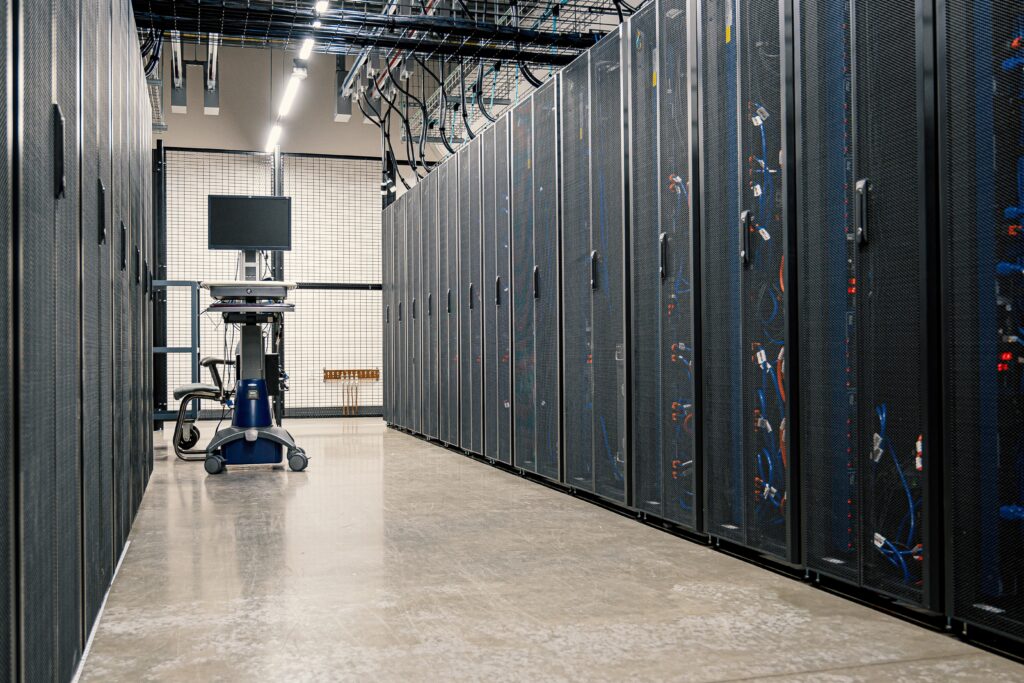Storage management

Storage management includes the technologies and processes that organizations use to maximize or improve the performance of their data storage resources. The aim to improve and maximize the efficiency of data storage resources. The storage management process can handle local or external storage such as NAS, SAN, USB, SDD, HDD, cloud.
Additionally, increasing storage capacity is a costly investment for businesses, so it requires good capacity planning and further thinking, especially given the speed at which data is growing.
Click here for general IT Support services for Businesses
Things you need to know about storage management
Segregate Your Data Wisely
Not all data is the same as it can have different business values. This difference helps you determine the best storage strategy for your business. There are several important factors to consider when developing a storage strategy, such as data recovery, data retention details, security, and even regulatory requirements.
Understand Your Compliance Needs
If you are a public company or a private company, your storage service compliance requirements may differ. Companies that regulate financial services and healthcare must also maintain the highest standards of compliance and security, so choose your data warehouse accordingly.
Servers, Not Storage Arrays

Storage arrays has been an important part of the storage industry for many years because of its huge potential. Now that servers have become more powerful and can hold some storage on their own.
Keep your back up data simple
Too much backup takes up too much space. Useless data is not really that good. If you have a local storage server, it can be bad for performance.
A strategic approach
The tiering process for storing data is very important because it can handle large amounts of data and offload high-performance storage systems. Using different layers in your storage system improves processor efficiency, so you can also use a cheaper platform for storage than the cloud.
Load balancing and manage capacity
When collecting data, you need to be careful about load balancing, the nodes cannot improve the performance of the storage solution in the network traffic cluster when they are not balanced properly. Capacity management products can grow, support trends, and improve efficiency while supporting the operation of storage systems.
Beware of virus
In the past, viruses were simple and sent information to a hacker (Trojan), but today new forms of viruses have been created, such as ransomware. To be safe, you need to visit secure sites, do not download various suspicious applications, and do not install them. It is recommended to install antivirus software.
Understand your cloud
Using hybrid storage systems to build a robust storage infrastructure is heavily dependent on your storage cloud. Each storage cloud is different and optimized to improve the performance and stability of the underlying storage systems for archiving or backing up data.
Click here for cloud based solutions for the businesses like Google, AWS and Azure
Security

Antivirus software answers the security question, but there are several answers. Data encryption is recommended in addition to physically and realistically securing data. Not everyone should have access to it.
Have a disaster recovery plan
Disaster recovery planning is critical for all organizations, regardless of the storage solution they use. This is because human error can lead to data loss and natural disasters can cause it. If you cannot restore your data, you will not be able to save it every time you backup. So be sure to check the backup method you are using regularly.
Click here for general support issues of home users
Benefits of storage management
Enhance Performance
One of the primary goals of storage management is to improve the performance of existing storage resources. For example, compressing the data significantly reduces the amount of storage and increases the speed of file transfer. Providing automatic storage reduces the amount of time it takes to provide storage resources.
Availability
Availability is probably the biggest benefits of memory management. For example, technologies such as duplicates, snapshots, and mirrors, migration, and disaster recovery can lead to greater availability and reliability of data availability. Storage technologies help you to back up and restore data faster but can also serve as some basic storage.
Security
When something has to do with the internet, security is our main concern and most large and small businesses use cloud storage services. Cloud storage stores your data on redundant servers, so even if one of your data centers goes down, your data will be managed by the other data centers making your data safe and controlled.
Reduce expenses
The most important cost for storage is infrastructure maintenance and operation. Businesses do not have to increase their storage capacity too much, which can reduce capital costs. Operational cost could also be downgraded as storage continues.
Storage types
Cloud Storage

For small and medium sized companies, it does not make much sense to invest in expensive storage hardware. Offloading all data operations to a public cloud provider through a campaign and shift strategy or highly specialized migration can provide immense flexibility and other benefits. Public cloud solutions are usually scalable enough to provide additional storage or compute resources as needed. Easy access to the cloud allows employees to access data virtually anywhere. Thanks to the flexible payment options offered by cloud service providers, it gives agencies the ability to pay only the amount of storage they need offsite while reducing the number of expensive storage devices they need onsite.
On-premises
An on-premises data solution generally includes servers that are owned and operated by the organization itself. For larger companies, these servers may be in a private data center, but in many cases, they consist of multiple machines located in a dedicated office data room. On-premises solutions give the data owner full responsibility for creating and controlling the IT infrastructure in which the data is stored.
click here to purchase any IT related software or hardware: https://www.xtechbuy.com/
Colocation
Colocation is the hosting of servers and private network devices in a third-party data center. Instead of the internal scenario in which servers are housed in a room or section of a company’s business infrastructure, there is the option of “locating” the devices by renting storage space in a colocation center. Colocation customers benefit from estimated power and cooling pricing instead of dealing with fluctuating operating costs.
Best way to store data
Choosing the best data storage method comes down to identifying the specific needs of an organization. Fortunately, there are so many storage solutions out there that it is relatively easy to mix and match as needed. Businesses must first determine the requirements for storing their applications, their data and where and how they access this data. Knowing how much data you are processing and how, when, and where to access it will allow you to better understand your storage needs.
Storage options
External hard drive: An easy and relatively inexpensive way to add more storage space is to connect an external hard drive to your computer. However, external hard drives directly connected to the PC have many disadvantages. Files that are stored in drive must be backed up.
Online storage: Services that provide remote storage and backup over the Internet offer many attractive benefits to businesses. You can protect the data stored in your office by backing up your most important files to a secure remote server. By providing password-protected access to your online storage service, you can easily share large files with clients, partners, and others.
Network-attached storage: Network Attached Storage provides fast, easy, and reliable access to your data in an IP network environment. Network Attached Storage solutions are suitable for small businesses that require large amounts of cost-effective storage that can be shared by multiple users over the network. And because many small businesses do not have an IT department, Network Attached Storage solutions are easy to deploy, manage, and integrate.

